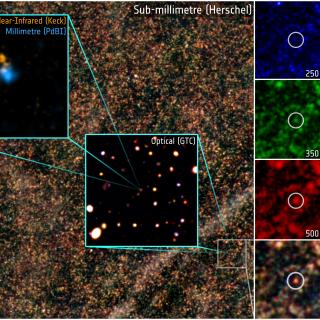Bibcode
Roussel, H.; Wilson, C. D.; Vigroux, L.; Isaak, K. G.; Sauvage, M.; Madden, S. C.; Auld, R.; Baes, M.; Barlow, M. J.; Bendo, G. J.; Bock, J. J.; Boselli, A.; Bradford, M.; Buat, V.; Castro-Rodríguez, N.; Chanial, P.; Charlot, S.; Ciesla, L.; Clements, D. L.; Cooray, A.; Cormier, D.; Cortese, L.; Davies, J. I.; Dwek, E.; Eales, S. A.; Elbaz, D.; Galametz, M.; Galliano, F.; Gear, W. K.; Glenn, J.; Gomez, H. L.; Griffin, M.; Hony, S.; Levenson, L. R.; Lu, N.; O'Halloran, B.; Okumura, K.; Oliver, S.; Page, M. J.; Panuzzo, P.; Papageorgiou, A.; Parkin, T. J.; Pérez-Fournon, I.; Pohlen, M.; Rangwala, N.; Rigby, E. E.; Rykala, A.; Sacchi, N.; Schulz, B.; Schirm, M. R. P.; Smith, M. W. L.; Spinoglio, L.; Stevens, J. A.; Srinivasan, S.; Symeonidis, M.; Trichas, M.; Vaccari, M.; Wozniak, H.; Wright, G. S.; Zeilinger, W. W.
Bibliographical reference
Astronomy and Astrophysics, Volume 518, id.L66
Advertised on:
7
2010
Journal
Citations
82
Refereed citations
75
Description
M 82 is a unique representative of a whole class of galaxies, starbursts
with superwinds, in the Very Nearby Galaxy Survey with Herschel. In
addition, its interaction with the M 81 group has stripped a significant
portion of its interstellar medium from its disk. SPIRE maps now afford
better characterization of the far-infrared emission from cool dust
outside the disk, and sketch a far more complete picture of its mass
distribution and energetics than previously possible. They show emission
coincident in projection with the starburst wind and in a large halo,
much more extended than the PAH band emission seen with Spitzer. Some
complex substructures coincide with the brightest PAH filaments, and
others with tidal streams seen in atomic hydrogen. We subtract the
far-infrared emission of the starburst and underlying disk from the
maps, and derive spatially-resolved far-infrared colors for the wind and
halo. We interpret the results in terms of dust mass, dust temperature,
and global physical conditions. In particular, we examine variations in
the dust physical properties as a function of distance from the center
and the wind polar axis, and conclude that more than two thirds of the
extraplanar dust has been removed by tidal interaction, and not
entrained by the starburst wind.
Herschel is an ESA space observatory with science instruments provided
by European-led Principal Investigator consortia, and with important
participation from NASA.
Related projects

Formation and Evolution of Galaxies: Observations in Infrared and other Wavelengths
This IAC research group carries out several extragalactic projects in different spectral ranges, using space as well as ground-based telescopes, to study the cosmological evolution of galaxies and the origin of nuclear activity in active galaxies. The group is a member of the international consortium which built the SPIRE instrument for the
Ismael
Pérez Fournon